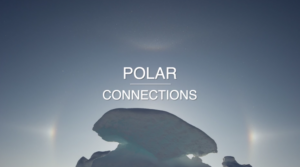Polar Literacy Principles
The Polar Regions are facing changes with global consequences. From climate to food web changes, impacts continue to emerge, while the importance of our Polar Regions are often overlooked. The Polar Literacy Principles outline essential concepts to improve public understanding of these critical and sensitive ecosystems.
For polar scientists, these principles define the important concepts to convey when communicating the broader impacts of their research. For educators, these principles provide guidance on significant concepts to teach about the Polar Regions.
Additional Resources on the Polar Literacy Initiative
Polar Literacy Principles Brochure
For a complete list of all of the principles, download our 2-page brochure.

Polar Connections
This 4-minute introductory video highlights how we are all connected to the Polar regions.

For more, check out this interview by Ari Daniel (Senior Digital Media Producer at NOVA) with Dr. Joel Barker at the Byrd Polar and Climate Research Center, The Ohio State University.








